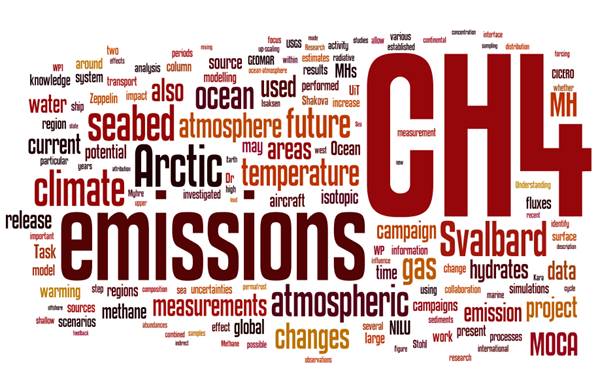The MOCA project will enhance understanding of the present atmospheric effects of methane released from dissociation of gas hydrates in Arctic seabed sediments, and will also inform on the future potential impacts in a warming climate on decadal to centennial timescales.
Methane hydrates (MH) in ocean seabed sediments are a potential source of methane (CH4) to the atmosphere, where CH4 has potential to act as a powerful greenhouse gas. Recent scientific results studies show diversity in the flux of CH4 that actually reaches the atmosphere. MH are potentially susceptible to ocean warming, which could trigger a positive feedback resulting in rapid climate warming.
MOCA is funded by the Norwegian Research Council and will apply advanced measurements and modelling to quantify the amount and present atmospheric impact of CH4 originating from MH. Furthermore, the project will investigate potential future climate effects from destabilisation of MH deposits in a warming climate, and will focus on scenarios in 2050 and 2100.

Content related queries: Cathrine Lund Myhre (clm ‘at’ nilu.no)









